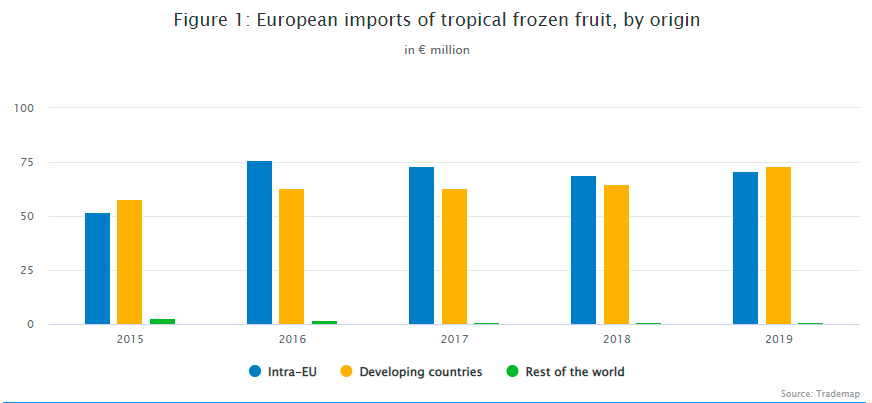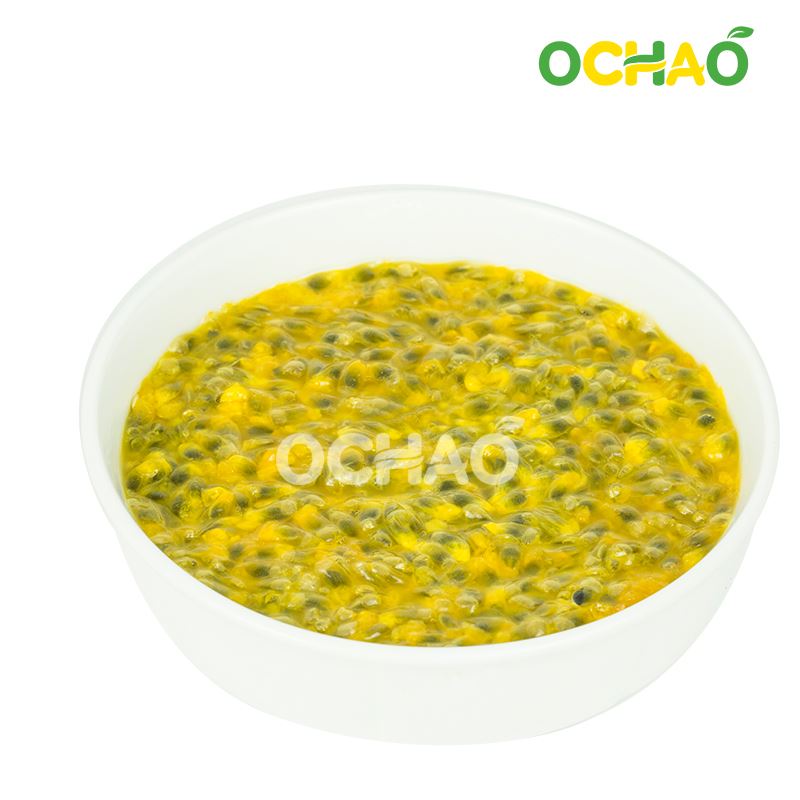Agricultures, Foods, News & Event
The European market potential for tropical frozen fruit
Growth in the European market for tropical frozen fruit is likely to be driven by changes in the consumption patterns of European consumers. An example of these changes is the increasing popularity of smoothies as a convenient and healthy breakfast option. Industry users — primarily the dairy, ice cream, and bakery industries — are creating innovative and healthy uses for frozen tropical fruit as ingredient. The Netherlands, Germany, France, Belgium, Poland and the United Kingdom offer opportunities for developing country suppliers.
What makes Europe an interesting market for tropical frozen fruit?
Europe is a large importing region of tropical frozen fruit, accounting for a share of 45% of the total world’s imports of tropical frozen fruit. European imports of tropical frozen fruit have increased by 6.4% on average per year in value over the 2015–2019 period. Imports from European and developing countries are somewhat equal in value, each responsible for approximately 50% of the total European imports of tropical frozen fruit.
Imports of tropical frozen fruit are expected to continue to increase in the coming years at a high annual growth rate probably beyond 5%. This expected increase will be driven by the increasing demand for healthy food, consumer interest in more diverse menus including exotic fruits, and convenience. The popularity of smoothies as part of breakfasts and other eating opportunities is a specific driver that combines all of these trends in one.

Between 2015 and 2019, European imports of tropical frozen fruit grew every year on average by 6.4% to a value of €145 million in 2019. With an annual average growth rate of 7.9%, imports from European countries have increased faster compared to imports from developing countries (average growth of 5.9%). This is mainly caused by a large growth in 2016. Internal European trade consists of simple re-exporting of imported tropical frozen fruit. In addition, a large share of intra-European trade represents frozen tropical fruit with added sugar, meaning that after imports from developing countries European traders are adding value to imported products.
There is an upward trend in imports from developing countries, which peaked especially in 2019 at 11% growth in relation 2018. The total value of frozen fruit imports from developing countries to the EU was €73 million, which is 50% of all EU frozen fruit imports. This is explained by the fact that only part of the imports from developing countries is consumed directly in the domestic market of the European country of arrival in the EU. The other part is intra-European trade, where companies re-export the imported tropical frozen fruit to other European destinations.

Most of the tropical frozen fruit imported into Europe is used by the fruit processing industry, while smaller shares are destined for retail and food service channels. The Netherlands, Germany, France, Belgium, Poland, and the United Kingdom are the largest European markets for tropical frozen fruit. However, the Netherlands and Belgium have positioned themselves more as a trade and processing hubs. Belgium is home to several large frozen fruit processing companies, and most of the tropical frozen fruit imported into Belgium is not sold within the country but re-exported or further processed.


